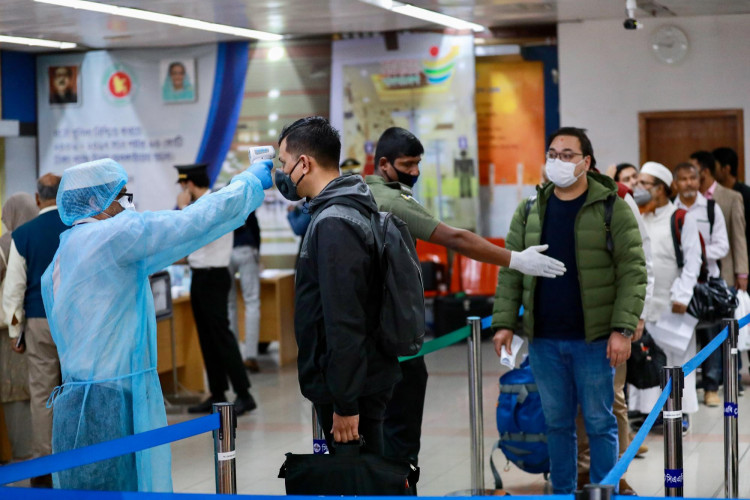SARS-CoV-2 (severe acute respiratory syndrome coronavirus 2), the virus that causes COVID-19, is at its most contagious in the first five days after symptom onset but can still infect others for as long as nine days.
These critical findings are among the vital pieces of information derived from a study just published in The Lancet Microbe by researchers at the University of St. Andrews in Scotland.
The finding COVID-19 is most contagious in the first five days after symptom onset underlines the importance of early case identification and quarantine. It also suggests repeat diagnostic testing for COVID-19 might not be necessary to decide whether a patient is no longer contagious.
Study lead author, Dr. Muge Cevik of the University of St. Andrews, said diagnostic testing "could remain positive for much longer and does not necessarily indicate they could pass on the virus to others. In patients with non-severe symptoms, their period of infectiousness could instead be counted as 10 days from symptom onset."
The study also found no difference between viral load peaks in COVID-19 patients with and without symptoms. It did note indications that asymptomatic patients clear SARS-CoV-2 faster and therefore might be contagious for a shorter time.
Understanding the pattern of COVID-19 contagiousness is critical for public health officials charged with crafting measures to control its spread, according to the study.
Most countries still recommend COVID-19 patients quarantine for 10 days. Others require a full 14 days.
The study revealed the duration of viral RNA shedding was 17 days on average in the upper respiratory tract. RNA shedding was 14.6 days in the lower respiratory tract; 17.2 days in stool, and 16.6 days in serum.
The longest times of shedding were 83 days in the upper respiratory tract; 59 in the lower respiratory tract; 35 days in stool, and 60 days in serum.
"Our findings are in line with contact tracing studies which suggest the majority of viral transmission events occur very early, and especially within the first 5 days after symptom onset, indicating the importance of self-isolation immediately after symptoms start," said Dr. Cevik.
"We also need to raise public awareness about the range of symptoms linked with the disease, including mild symptoms that may occur earlier on in the course of the infection than those that are more prominent like cough or fever."
The study and meta-analysis involved 98 studies on 7,997 patients infected with the SARS-CoV-2, severe acute respiratory syndrome (SARS-CoV-1), or Middle East respiratory syndrome (MERS-CoV). Seventy-nine of the studies involved COVID-19 patients.






